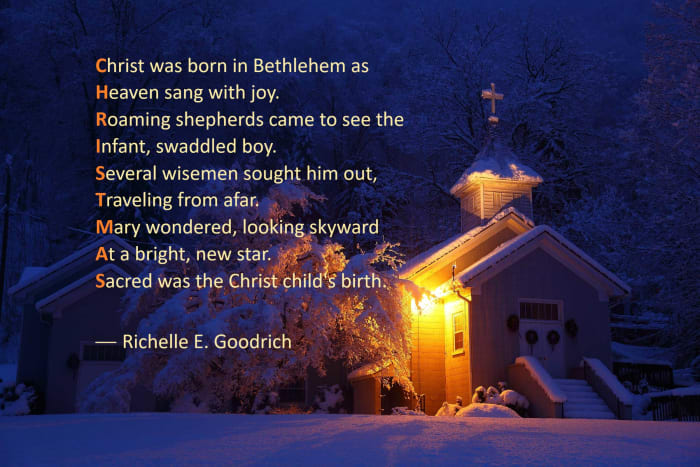The Religious Significance Of Christmas Wishes And Their Impact
The Religious Significance of Christmas Wishes and Their Impact
Related Articles: The Religious Significance of Christmas Wishes and Their Impact
Introduction
With enthusiasm, let’s navigate through the intriguing topic related to The Religious Significance of Christmas Wishes and Their Impact. Let’s weave interesting information and offer fresh perspectives to the readers.
Table of Content
The Religious Significance of Christmas Wishes and Their Impact

Christmas, a holiday celebrated by billions worldwide, holds deep religious significance for Christians. While the festive season is marked by joyful gatherings, gift-giving, and the spirit of goodwill, its core essence lies in the celebration of the birth of Jesus Christ. This event, as described in the Bible, is central to Christian faith and serves as the foundation for numerous beliefs and practices.
The act of extending Christmas wishes, therefore, carries a profound religious significance, transcending mere social courtesy. It reflects a desire to share in the joy and hope that the birth of Christ represents. These wishes often express sentiments of peace, love, and goodwill, values that are central to Christian teachings.
The Evolution of Christmas Wishes: From Scripture to Tradition
The concept of wishing well during the Christmas season has evolved over centuries, deeply intertwined with Christian scripture and tradition. The biblical narratives surrounding the birth of Jesus provide a rich tapestry of themes that underpin Christmas wishes.
- The Annunciation: The angel Gabriel’s message to Mary, announcing the birth of Jesus, emphasizes the theme of hope and salvation. Christmas wishes often echo this sentiment, expressing hopes for a brighter future and the promise of redemption.
- The Nativity: The story of Jesus’ birth in a humble stable, amidst the adoration of shepherds and the arrival of wise men from the east, highlights themes of humility, generosity, and the universal appeal of Christ’s message. These themes are reflected in Christmas wishes that emphasize compassion, kindness, and the importance of sharing.
- The Shepherds’ Song: The angels’ announcement to the shepherds, "Glory to God in the highest, and on earth peace, good will toward men," (Luke 2:14) encapsulates the core message of Christmas. This verse serves as a foundation for Christmas wishes that express desires for peace, harmony, and love among all people.
These biblical themes have shaped the traditions surrounding Christmas wishes, transforming them into meaningful expressions of faith and goodwill. The exchange of Christmas greetings has become a cherished practice, serving as a tangible expression of the spirit of the season.
Exploring the Significance of Specific Christmas Wishes
The specific words used in Christmas wishes often carry deeper religious significance, drawing upon Christian beliefs and values. Here are some common Christmas wishes and their underlying religious connotations:
- "Merry Christmas": This phrase, though seemingly simple, carries a profound meaning. "Merry" refers to the joy and happiness associated with the birth of Christ, while "Christmas" signifies the celebration of his arrival.
- "Happy Holidays": This inclusive greeting, often used to acknowledge the diverse religious and cultural backgrounds of individuals, still carries a sense of goodwill and celebration. It acknowledges the shared desire for peace and joy during this festive season.
- "Peace on Earth, Goodwill to Men": This phrase, directly taken from the biblical account of the angels’ announcement, encapsulates the core message of Christmas. It expresses a longing for peace and harmony, both among individuals and nations.
- "May the Christmas Spirit Fill Your Heart": This wish speaks to the transformative power of Christ’s message, emphasizing the desire for individuals to be filled with love, compassion, and generosity.
- "Wishing You a Blessed Christmas": This wish invokes the blessings of God, expressing a desire for spiritual renewal and divine favor.
These examples demonstrate how Christmas wishes, beyond being mere social pleasantries, offer a window into the deeply held religious beliefs and values of Christians. They serve as tangible expressions of faith, hope, and goodwill.
The Impact of Christmas Wishes: Fostering Unity and Sharing the Message of Christ
The act of extending Christmas wishes has a significant impact, fostering unity and spreading the message of Christ. By expressing these wishes, individuals:
- Acknowledge the Shared Human Experience: Christmas wishes transcend religious boundaries, recognizing the shared human desire for peace, joy, and love. This act of extending goodwill fosters a sense of unity and understanding, bridging cultural and religious differences.
- Share the Message of Hope and Redemption: Christmas wishes, rooted in the birth of Jesus Christ, offer a message of hope and redemption. They remind individuals of the possibility of a brighter future, marked by peace, love, and reconciliation.
- Promote Acts of Kindness and Generosity: The spirit of Christmas encourages acts of kindness and generosity. Extending Christmas wishes often leads to acts of service, charity, and compassion, reflecting the teachings of Christ.
- Strengthen Community Bonds: The exchange of Christmas wishes strengthens community bonds, fostering a sense of belonging and shared purpose. It creates opportunities for individuals to connect, share experiences, and celebrate the season together.
The impact of Christmas wishes is not limited to the individual level. They have the potential to shape societal values and inspire actions that promote peace, love, and unity.
FAQs on Christmas Wishes and Their Religious Significance
1. Is it appropriate to wish "Merry Christmas" to someone who is not Christian?
While "Merry Christmas" is a traditional greeting, it is important to be sensitive to the religious beliefs of others. "Happy Holidays" or "Season’s Greetings" are more inclusive greetings that acknowledge the diverse religious and cultural backgrounds of individuals.
2. What is the significance of sending Christmas cards?
Sending Christmas cards is a long-standing tradition that allows individuals to express their wishes and share the spirit of the season with loved ones. These cards often feature religious imagery or messages, reflecting the Christian significance of Christmas.
3. How can Christmas wishes be used to promote peace and goodwill?
By extending Christmas wishes with sincerity and compassion, individuals can foster a sense of unity and understanding, promoting peace and goodwill among people of different backgrounds. These wishes can also inspire acts of kindness and generosity, reflecting the teachings of Christ.
4. Are there any specific rituals or practices associated with Christmas wishes?
While there are no specific rituals, the act of extending Christmas wishes often involves a sense of ceremony and tradition. Many people choose to send cards, make phone calls, or visit loved ones in person to express their wishes.
5. Can Christmas wishes be used to express personal hopes and dreams?
Absolutely. Christmas wishes can be a powerful way to express personal hopes and dreams, especially those related to peace, love, and spiritual growth. They can serve as a reminder of the transformative power of the Christmas message.
Tips for Extending Meaningful Christmas Wishes
- Be sincere: Let your Christmas wishes reflect your genuine feelings of goodwill and love.
- Consider the recipient’s beliefs: Choose greetings that are appropriate for the recipient’s religious and cultural background.
- Express your appreciation: Take the opportunity to express your gratitude for the person’s presence in your life.
- Offer words of encouragement: Share words of hope and encouragement, reflecting the message of Christ’s birth.
- Go beyond words: Consider accompanying your wishes with a small act of kindness or generosity.
Conclusion: The Enduring Power of Christmas Wishes
Christmas wishes, deeply rooted in Christian faith and tradition, serve as powerful expressions of goodwill, hope, and love. They reflect the joy and peace associated with the birth of Jesus Christ and inspire individuals to live lives that embody the values of compassion, generosity, and unity. As the world celebrates Christmas, the exchange of these wishes continues to foster a spirit of shared humanity, reminding us of the enduring power of love and hope.








Closure
Thus, we hope this article has provided valuable insights into The Religious Significance of Christmas Wishes and Their Impact. We appreciate your attention to our article. See you in our next article!
Leave a Reply